Unilever, Sky, Ryanair: Everything that matters this morning
Good morning and welcome to Marketing Week’s round-up of the news that matters in the marketing world today.
Industry leaders praise Brexit white paper but call for more detail
Advertising industry groups have responded to the government’s Brexit white paper with cautious optimism, however the financial sector has been left disappointed.
“There are some positive signals in this white paper but also some areas for concern where more detail is urgently required,” says Stephen Woodford, chief executive of the Advertising Association.
The advertising industry is concerned that Britain’s position as a £120bn-a-year global hub for the sector will be threatened unless it it has easy access to international talent.
The white paper emphasises repeatedly that free movement of people will come to an end. Full details of a new immigration policy are due to be published separately.
The paper also calls for a future UK-EU agreement to provide for the continued exchange of personal data which is good news for the ad industry.
Woodward adds: ‘We welcome the positive proposals on data protection. Cross-border data flows are essential to a healthy advertising ecosystem which is increasingly digital and global in nature. However, the end of free movement poses a real danger to our world-class status.
“Time is of the essence – advertising and marketing communications businesses need clarity to plan effectively for the future and we ask Government to provide detail on the supplementary provisions as a matter of urgency.”
Ian Wright, chief executive of federation of food and drink, also comments: “The devil is in the detail. FDF will insist that the proposals support the competitiveness of the UK’s largest manufacturing sector and enable us to continue to deliver a fantastic range of food and drink to shoppers all year round.”
However, financial services are concerned, CEO of Lloyd’s of London, Inga Beale, telling the BBC the government’s Brexit plan will speed up the departure of banks from the UK.
Investors express concern over Unilever move

Investors are concerned that Unilever’s headquarters move could result in forced sales of shares and the company being ejected from the FTSE 100.
Currently the FMCG giant is based in both the Netherlands and the UK but announced it would base itself in Rotterdam in order to simplify the business and prevent a hostile takeover.
One of Britain’s top-rated fund managers has warned Unilever against its decision to move. Nick Train, of Lindsell Train, a top five shareholder in the maker of Dove soap and Marmite, told The Times that Unilever’s decision to abandon its current structure could “inconvenience” and increase risks for clients.
“We will become forced sellers of the shares for some clients at a time and a price not of our choosing,” he said.
Last month, Unilever finance director Graeme Pitkethly admitted the company was “extremely unlikely” to be included in the FTSE UK series.
UK investors are worried the move would lead to the company being ejected from the FTSE 100 which some shareholders believe will mean their stock could be sold off at lower prices.
Investors are due to vote on the company’s proposals before the end of September. Unilever needs 75% of UK shareholders to vote in favour of the move, and half of investors in the Netherlands.
READ MORE: Leaving UK could hit Unilever, investor warns (£)
Murdoch wins government clearance for Sky takeover

The government has given Rupert Murdoch clearance to take over Sky as the media mogul faces a £26bn-plus bidding war with US cable company Comcast.
The new culture secretary, Jeremy Wright, has given Murdoch’s 21st Century Fox the green light to buy the 61% of Sky it does not already own. However, it must sell Sky News to reduce Murdoch’s control of UK media.
Wright, who has only been in place a few days, said he was confirming the decision of his predecessor Matt Hancock.
“I am content to confirm this position,” Wright said in a written ministerial statement. “It is right that Ofcom, the Competition Markets Authority and my department have taken such care in ensuring the bid is properly and effectively scrutinised. It is now a matter for the Sky shareholders to decide whether to accept [a Fox] bid.”
However, this is not a done deal and Murdoch still needs to see off Comcast with investors expecting further bids to continue over the next couple of weeks. Yesterday, Fox raised its bid for Sky to £24.5bn but shortly after Comcast upped the ante with a £26bn offer.
READ MORE: Murdoch’s Fox cleared for Sky takeover bid
Dunelm and DFS predict poor results due to heatwave
Homeware retailers Dunelm and DFS have warned profits will be hit after a summer heatwave kept customers out of shops.
DFS shares plunged 10% in early trading, with the retailer blaming “exceptionally hot weather” for poorer order numbers over the last three months and warned business would continue to be tough over the next year.
Orders were also affected by delays of made-to-order sofas from east Asia, causing sales to drop 3% in the 23 weeks to 7 July compared with a year earlier.
DFS now expects full-year profits to come in lower than last year’s £82.4m. “In the fourth quarter to date, exceptionally hot weather, including over key trading weekends, has led to significantly lower-than-expected order intake,” says the retailer.
Homeware store Dunelm was also affected with like-for-like sales at stores falling by 4.6% in the 13 weeks to 30 June. However, online sales were up nearly 42% meaning that total sales were flat.
READ MORE: DFS and Dunelm blame hot weather for shock profit downgrades
Ryanair faces two more days of strike action
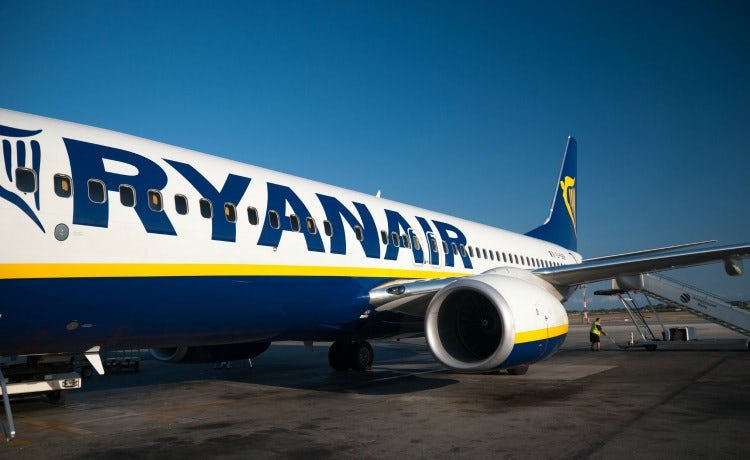
Ryanair is facing two more days of strike action after cancelling 30 flights between the UK and Ireland yesterday as a result of industrial action.
The pilots union is now planning two 24-hour strikes on Friday 20 July and Tuesday 24 July.
The news comes after the airline faced its first day of strikes in Ireland yesterday, causing the airline to cancel flights. A quarter of Ryanair’s Irish-based pilots launched the strike over their pay and conditions.
Their concerns include a dispute over seniority, as well as the procedures for allocation of base transfers, promotions and annual leave.
READ MORE: Ryanair cancels 30 flights as pilots strike
Thursday 12 July
Tesco faces £4bn compensation bill over equal pay
Tesco could face a £4bn compensation bill as a law firm lodges 1,000 unequal pay claims against the supermarket, with many more to come.
The claims come after it was revealed in February that staff in its distribution centres, who are predominantly male, get paid “considerably” more than team members working in stores.
Leigh Day, the law firm bringing the claims, says people working in distribution centres can earn more than £11 an hour while store staff are generally paid around £8 per hour.
This “underpayment” could apply to more than 250,000 of the supermarket’s employees, according to the law firm, meaning estimated pay shortfalls could reach £20,000. The final bill for Tesco could therefore be up to £4bn.
READ MORE: Tesco could face £4bn compensation bill after law firm reveals 1,000 equal pay claims
Burberry’s UK sales slip as Chinese consumers shift spend to Asia

Burberry has blamed a drop in tourism, particularly from Chinese customers, for falling sales in the UK and Europe.
The luxury fashion house has posted revenues of £479m for the 13 weeks to 30 June, down from £478 during the same period last year, while same-store sales grew by 3%, down from 4% for the same period in 2017.
Burberry’s chief operating and financial officer Julie Brown says there were “far fewer Chinese tourists coming to the UK and Europe” over the past three months, with these customers instead choosing to spend their cash in Hong Kong, South Korea, Japan and mainland China.
She says Chinese customers are particularly sensitive to currency movements and tend to travel and shop in countries where the exchange rates are most favourable.
Chinese consumers account for 40% of Burberry’s sales.
There was also a slight decline in spending from local shoppers in Britain.
Asos, meanwhile, has just posted a 22% rise in retail sales to £802.7m for the four months to 30 June 2018 compared to the same period last year.
Nick Beighton, Asos’s CEO, says the business is on track with its plans for the year having delivered “good sales growth, particularly in the UK, better than planned gross margin alongside significant progress on infrastructure investments”.
READ MORE: Burberry blames falling sales in UK and Europe on stronger currencies
Ex-Cambridge Analytica staff launch copycat business
A number of former Cambridge Analytica employees, including the head of its political arm outside the UK and US, have set up a new business using the same data analysis techniques in the Middle East and Africa, according to the Financial Times.
The launch of the new London-based company, called Auspex International, comes a day after criminal proceedings started against Cambridge Analytica’s parent company SCL Elections, in a move it hopes shake off associations with the scandal that impacted 87 million Facebook users.
The company will be headed by Mark Turnbull, the ex-head of Cambridge Analytica’s political team outside the UK and US, alongside seven other members of his former team, and has already won a contract for political work in an unnamed African state.
The business is being funded by Ahmad Al-Khatib, a former director of a company called Emerdata that had planned to acquire and rebrand Cambridge Analytica before it was hit by the Facebook scandal.
Affluent households increase luxury purchasing

There has been a sharp jump in the number of luxury items being bought by wealthy households over the past year despite economic confidence falling at the same time, according to data from YouGov’s Affluent Perspectives study.
The data shows a 13 percentage point rise in those buying luxury items in 2018 compared to the previous year, jumping from 56% in 2017 to 69% this year, a higher rate of increase than many other countries.
However, the study, which is based on the views and behaviours of people living in households with an income higher than £100,000, also shows that just 13% of affluent households in the UK are confident in the global economy, down from 16% in 2017. There has also been a fall in wealthy households’ confidence in the UK economy.
One explanation for the increased spend despite falling confidence is that people find it hard to stop buying luxury goods, given 39% of affluent households in the UK say “once you experience luxury, it’s hard to scale back”. Nearly half (46%) are happy to spend extra on luxury goods too.
Cara David, managing partner at YouGov says: “While affluent households in much of the rest of the world are confident, those in the UK are much more uncertain. But whether they see the glass half-full or half-empty, luxury continues to hold a committed place in their lives.”
Labour party illegally sold data on new mums
The Labour party was illegally sold data on more than 1 million new mothers and pregnant women ahead of the 2017 general election.
Emma’s Diary, which describes itself as “one of the UK’s leading baby clubs for mums-to-be, providing expert advice on every aspect of pregnancy and childcare”, has been issued with a notice of intent to fine by the Information Commissioner’s Office (ICO).
The company, which denies some of the allegations, can make representations to the ICO to reduce the fine, which currently stands at £140,000, before it makes a final decision.
READ MORE: Labour bought data on 1m mothers and their children
Wednesday, 11 July

Facebook fined £500,000 over Cambridge Analytica scandal
Facebook has been fined £500,000 – the maximum amount possible – for its part in the Cambridge Analytica scandal, with the UK’s data regulator the ICO criticising the social network for failing to safeguard users’ information and failing to be transparent about how data was used by third parties.
The fine is for two breaches of the Data Protection Act – data laws that were in place at the time of the breaches and were the forerunner to GDPR. Had the violations come under GDPR, the fine could theoretically have been much higher, with the ICO now able to implement maximum fines of €20m or 4% of global turnover – whichever is higher.
“Facebook has failed to provide the kind of protections they are required to under the Data Protection Act,” says information commissioner Elizabeth Denham. “Fines and prosecutions punish the bac actors, but my real goal is to effect change and restore trust and confidence in our democratic system.”
In response, Facebook’s chief privacy Officer, Erin Egan, says: “As we have said before, we should have done more to investigate claims about Cambridge Analytica and take action in 2015. We have been working closely with the ICO in their investigation of Cambridge Analytica, just as we have with authorities in the US and other countries. We’re reviewing the report and will respond to the ICO soon.”
The investigation has also seen the ICO send warning letters to 11 political parties and notices compelling them to agree to data protection audits. SCL Elections, Cambridge Analytica’s parent company, also faces criminal prosecution after failing to properly deal with the ICO’s enforcement notice although as it is now in administration it is not clear if company directors can still be pursued.
M&S boss warns more stores could close

Marks & Spencer has warned that more stores could close and jobs be lost as it issues a stark warning about the threat facing the high street giant.
Speaking at the company’s AGM, chairman Archie Norman described M&S as being on a “burning platform”, according to The Guardian. The retailer is in the first phase of a five-year turnaround plan as it looks to turn around years of falling clothing sales and declining profits.
M&S’s most recent results show annual profits fell 62% to £66.8m. While it has already pledged to shut 100 stores, Norman believes the retailer will need to be more ruthless about closing older stores that are not profitable.
“We don’t have a God-given right to exist and unless we change and develop this company the way we want to, in decades to come there will be no M&S,” he says.
“We have old stores in locations where people are not spending anymore and it’s a drag on our performance. We are grasping a nettle that should have been grasped many, many years ago. We have said it’s going to be 100 stores but I can’t tell you that it’s going to end there. We have got to get to the point where we have a modern estate and we have to go through the pain barrier to get there.”
READ MORE: Marks & Spencer chair to shareholders – ‘We’re on a burning platform’
Fox increases bid for Sky as it looks to see off rival Comcast
21st Century Fox has increased its offer for UK broadcaster Sky to £24.5bn, increasing its original bid of £18.5bn and topping rival Comcast’s £22bn offer. Fox says Sky’s independent committee has agreed the deal and it expects to receive regulatory approval this week.
Fox, which is owned by Rupert Murdoch, has been trying since 2016 to get approval to buy the 61% of Sky it does not already own. However, there have been concerns such a deal would give Murdoch too much control over the media in the UK because he already owns both The Sun and The Times.
To allay those concerns, Fox plans to sell Sky News to Disney once the deal is complete. Disney is also buying Fox’s entertainment assets, including its stake in Sky.
WFA issues template to protect brands from ‘one-sided’ data agreements

The World Federation of Advertisers has launched a Data Processing Agreement (DPA) template for advertisers in a bit to protect brands from signing “one-sided” documents that might leave them exposed to unfair risk.
The template, created in partnership with the Dutch Advertisers Association and Digital Decisions, aims to emulate the media contract template created by UK ad association ISBA. It is designed to be adaptable, while alerting them to key areas of importance and risks to look out for. It also ensures that brands, their agencies and partners comply with GDPR and sets out the obligations of all parties.
The move comes in response to growing advertiser concerns that some DPAs are written from the perspective of the data processor (the agencies and platforms) rather than the data controller. The hope is brands will use it to better understand what they need to include in their DPAs and more effectively assess their current agreements. Key areas including processor obligations and timelines in the event of a data beach, approval processes, audit rights and the liability of data processors in cases of non-compliance.
“With advertisers increasingly entering into direct contractual relationships with more and more partners to ensure they retain control of their data and direct relationship with consumers, the role of the DPA will become even more critical both strategically and to ensure they do not risk the reputational damage that could occur if they fail to comply with the requirements of GDPR. This template will give brands guidance to ensure they have the right level of transparency and control in their relationship,” says Stephan Loerke, CEO of the WFA
Highland Spring and McCain under fire over ‘misleading’ sales promotions
Highland Spring and McCain have both had complaints over “misleading” sales promotions banned – with the ad regulator warning that brands must do more to manage expectations over the likelihood of winning, or detail information such as how prizes are allocated or awarded.
Highland Spring stated there were 10,000 prizes to be won in an on-pack promotion, as well as a “bonus draw” that would offer another chance to win. However, in reality not all prizes would necessarily be won as consumers had to enter a promotion code during a “winning moment”.
Similarly, McCain advertised that £3m in prizes were available including items such as a Mini. But just 159 of the 28,515 prizes on offer were won, leading to complaints over whether the prize draw had been conducted fairly.
The Advertising Standards Authority ruled that both brands had broken the ad rules around promotional marketing, significant conditions for promotions and prize promotions. Both have been told to ensure future ads manage prospective participants’ expectations of winning, or make significant condition clear in order to avoid misleading or causing unnecessary disappointment.
Tuesday, 10 July
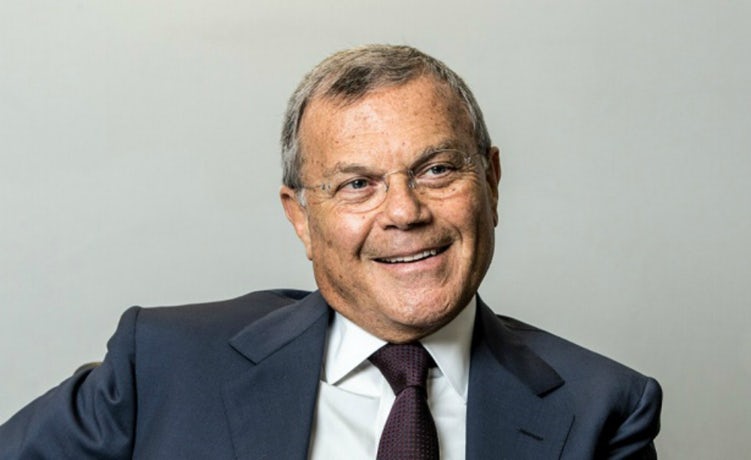
Sorrell defies WPP by sealing MediaMonks takeover
Sir Martin Sorrell has completed the purchase of Dutch digital production company MediaMonks in clear defiance of WPP’s claims that the acquisition is “unlawful”.
The first takeover made by Sorrell’s new advertising company S4 Capital is thought to be worth €300m (£266m) and will comprise a mix of cash and shares, according to BBC reports.
In a statement S4 Capital described the merger as representing its first move to create a “new era, new media solution embracing data, content and technology, which meets client needs in an always-on environment.”
Sorrell, who resigned as CEO of advertising giant WPP in April amid claims of misconduct, is positioning S4 Capital as a “multinational communication services business” built on acquisitions.
However, last week WPP claimed Sorrell’s pursuit of MediaMonks was “unlawful”, arguing that its former founder was guilty of breaching “confidentiality obligations” by using information gathered when he and WPP were considering acquiring the business last year, prior to his resignation as CEO.
WPP alleges Sorrell was “heavily engaged” in the company’s investigation of MediaMonks, including meeting the management team in the Netherlands.
By going ahead with the MediaMonks acquisition it is thought WPP could block Sorrell from receiving up to £20m in future payouts.
READ MORE: Sorrell sees off WPP in takeover race
Twitter suspends more than 1 million fake accounts a day

Twitter is suspending more than 1 million accounts a day as it escalates its action against fake and suspicious accounts.
According reports in The Washington Post, the social media site suspended more than 70 million accounts in May and June alone, with the pace of suspensions having more than doubled since October when Twitter went public about Russia’s use of fake accounts to interfere with the US 2016 presidential election.
While Twitter declined to comment on a possible decline in its user base, sources speaking to The Washington Post believe that the aggressive removal of suspicious accounts could result in a dip in the number of monthly users in the second quarter of 2018.
The rate at which Twitter is suspending suspicious accounts casts doubt on the social media platform’s estimates that fewer than 5% of its active users are fake or involved in spam, and less than 8.5% use automation tools that define the accounts as bots.
READ MORE: Twitter is sweeping out fake accounts like never before, putting user growth at risk
Tesco UK boss steps down to continue cancer treatment
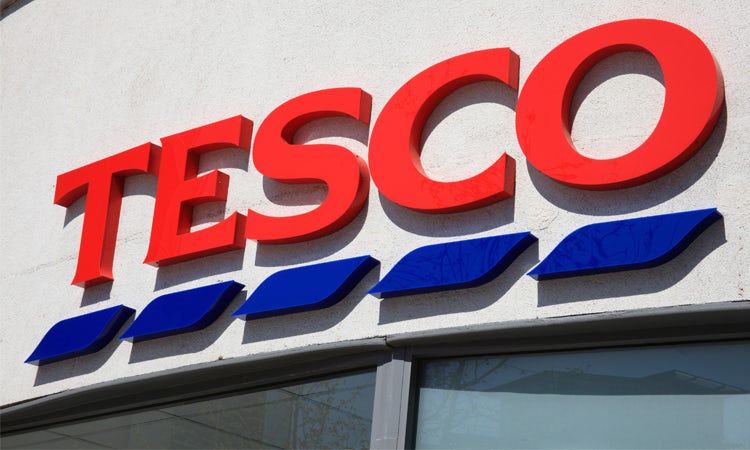
Charles Wilson is stepping down as CEO of Tesco’s UK and Ireland business to continue treatment for throat cancer.
The supermarket retailer confirmed that Wilson has been undergoing daily radiotherapy between May and June after being diagnosed with cancer in April and that he is responding “very well” to treatment, with all the signs suggesting the radiotherapy has been successful.
Wilson will continue leading the Booker business and remain on Tesco’s executive committee, while current group chief product officer Jason Tarry will take on the role of Tesco UK and Ireland CEO from 16 July.
Tarry’s role will be assumed by Tesco’s chief executive of Ireland, Andrew Yaxley.
Former Booker boss Wilson took charge of Tesco’s UK and Ireland retail and wholesale operations in February after the supermarket retailer finalised its £3.7bn merger with the cash-and-carry business.
Wilson’s appointment to role was seen at the time as cementing his position as the frontrunner to succeed Dave Lewis as Tesco chief executive.
READ MORE: A message from Charles Wilson
Uber branches out with investment in scooter hire firm
Uber has made a “sizeable investment” in electric scooter hire company Lime.
The deal will allow Uber users across 46 cities to rent Lime scooters via the car-sharing company’s app, as well as electric bikes and pedal bikes.
Lime founder Toby Sun claims the tie-up will make it increasingly easy to live without a car by offering commuters a “greater variety of transportation modes at their fingertips”.
Valued at $1bn, the 18-month old scooter hire firm has received $335m (£253m) worth of funding from Uber and Google parent company Alphabet, amongst others.
The investment in Lime comes after Uber’s $200m acquisition of electric bike hire startup Jump in April. The deal also follows hot on the heels of Uber rival Lyft’s acquisition on 2 July of America’s biggest bike sharing company, Motivate.
READ MORE: Uber invests in Lime city scooter hire company
Jeremy Wright appointed new Culture Secretary
Jeremy Wright has been appointed as Secretary of State for Digital, Culture, Media and Sport as part of a government reshuffle.
He replaces Matt Hancock, who held the role for six months and has now been appointed Secretary of State for Health and Social Care.
Wright is a QC and previously served as Attorney General for four years. He was elected the Conservative MP for Kenilworth and Southam in 2010.
Despite having “digital” as part of his remit, Wright does not appear to be active on social media. An unverified account with the handle @JeremyWrightPPC exists, but only appears to have five tweets dating back to 2015, ITV reports. In addition, a link to his Facebook page on the parliament website does not work.
READ MORE: New Culture Secretary an infrequent user of social media
Monday, 10 July
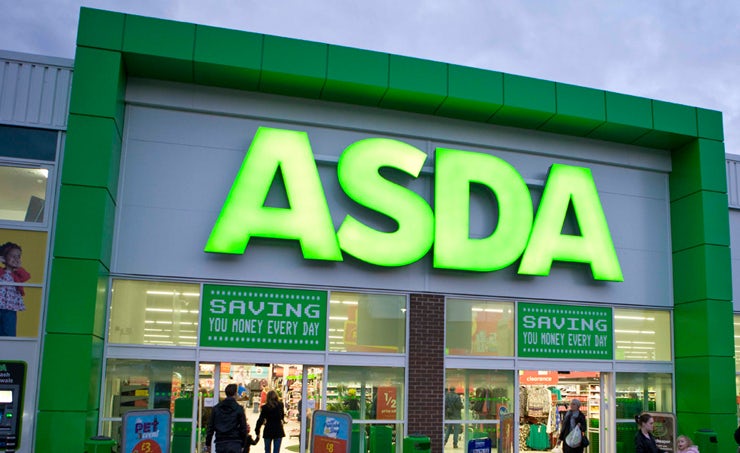
Asda boss warns hard Brexit will result in food waste
Asda’s chief executive Roger Burnley says there will be “significant consequences” from a hard Brexit that could see food left to waste at the border.
“What would be scary is the prospect of any holdup at the border. Any prospect of a holdup – that includes the Ireland border – would have very significant consequences,” Burnley says.
“You’d be eating into the life of products with all sorts of implications for waste, for freshness, for quality.”
Burnley says “hassle-free, frictionless borders” are number one on his list of Brexit priorities and that the prospect of a border control that slowed things down – especially at the Irish border where a lot of Asda’s meat comes from – would have a “dramatic” impact on that part of the business.
READ MORE: Hard Brexit could leave food rotting at border, Asda boss warns
Mastercard could launch fingerprint-scanning tech in UK

Mastercard is in talks with a number of UK banks about trialling new biometric technology that would allow cardholders to verify their identity with a fingerprint when making purchases in store or online.
The company is currently testing the biometric card in South Africa, which has a fingerprint-scanner on the top right corner of the card. A spokesperson for Mastercard says that while nothing is on the immediate horizon for the UK, it is ready for a pilot and would love one to happen.
Ajay Bhalla, president of global enterprise risk and security at Mastercard, adds: “The use of passwords to authenticate someone is woefully outdated, with consumers forgetting them and retailers facing abandoned shopping baskets.
“In payments technology this is something we’re closing in on as we move from cash to card, password to thumbprint, and beyond to innovate technologies such as artificial intelligence. It’s far easier to authenticate with a thumbprint or a selfie, and it’s safer too.”
Hard Brexit may force Philips to leave UK
Philips could move production out of the UK if a hard Brexit goes ahead. The Dutch electronics business’s chief executive, Frans van Houten, says he is “deeply concerned” about the competitiveness of Philips’s operations in the UK – especially its manufacturing operations.
“We estimate that the cost of the exported products will increase substantially under any scenario that is not maintaining the single customs union,” he says, and that Philips needs to “do worst case scenario planning”.
A spokesperson says this includes a so-called ‘hard Brexit’.
Philips currently employs around 1,500 people in the UK, most of which make baby care products at its Suffolk factory.
READ MORE: Hard Brexit could force Dutch electronics firm Philips to quit UK
Premier Foods CEO likely to be ousted
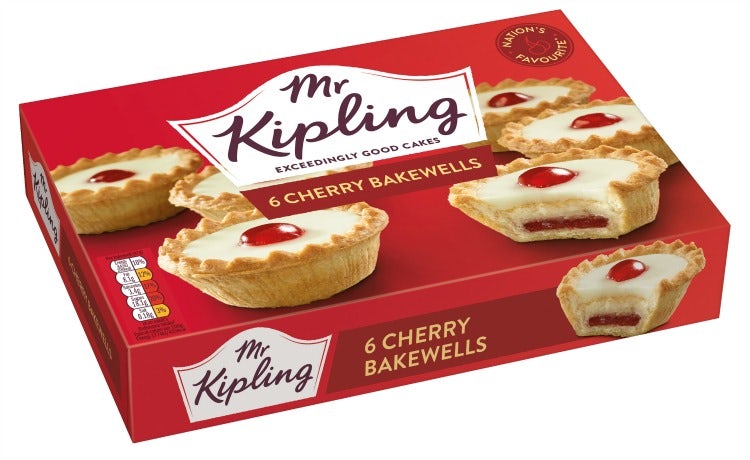
The chief executive of Premier Foods – which owns household brands including Mr Kipling, Angel Delight and Bisto – is expected to be forced out by shareholders this week.
Gavin Darby has come under fire from activist group Oasis management – the business’s second-largest shareholder – which plans to vote against Darby’s re-election as CEO at the company’s annual general meeting on 18 July.
Another one of the company’s key shareholders, Paulson, also said it has been disappointed by Premier Foods’s performance over the last two years.
Paulson said Premier Foods “desperately needs new management who are willing to put stakeholders’ benefits first” and it hopes the upcoming AGM will be a “reflection point”.
Another top 10 shareholder said it doesn’t think Darby can be trusted after the failed McCormick bid two years ago.
READ MORE: Premier Foods CEO could be forced out by shareholder revolt
Rupert Murdoch expected to be allowed to take full control of Sky
It looks like Rupert Murdoch will finally be given the all-clear from the British government to take full control of Sky.
Murdoch’s 21st Century Fox already owns 39% of the telecoms business; however, this week the culture secretary Matt Hancock is expected give the go-ahead for Murdoch to buy the remaining 61% for what reports suggest would be around £15.3bn.
The verdict follows an 18-month process which has involved investigations by Ofcom and the Competition Markets Authority, with many raising concerns that a full take over would give Murdoch too much control of UK news media.
It will also likely open up a bidding war with Comcast, which has until the end of this week to formally make its £22bn offer to Sky shareholders.
READ MORE: Rupert Murdoch set to receive clearance in bid for full control of Sky







